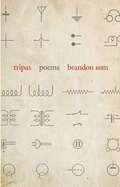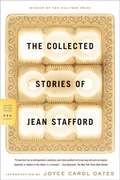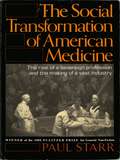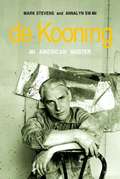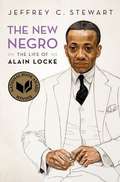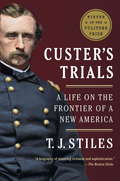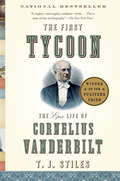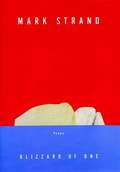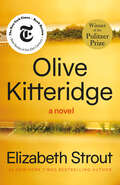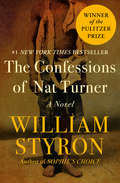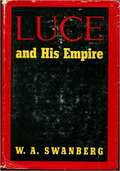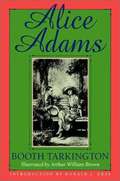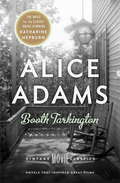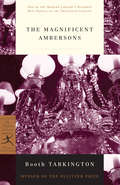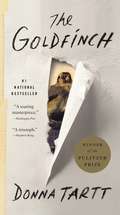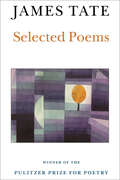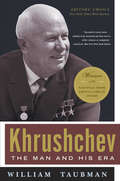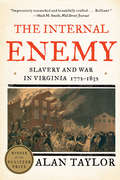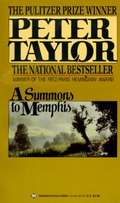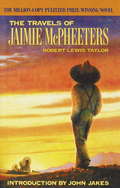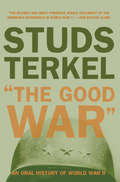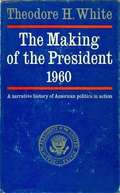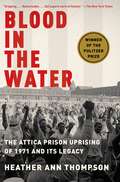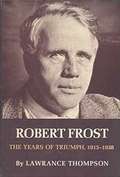Special Collections
Pulitzer Prize Award Winners
Description: Bookshare is pleased to offer the following titles, winners of the Pulitzer Prize Award. Note: Some drama winners are available and are listed under Fiction awards. #award
- Table View
- List View
Turtle Island
by Gary SnyderWinner of the Pulitzer Prize for Poetry (1975). These Pulitzer Prize-winning poems and essays by the author of No Nature range from the lucid, lyrical, and mystical to the political. All, however, share a common vision: a rediscovery of North America and the ways by which we might become true natives of the land for the first time.
Tripas
by Brandon SomWith Tripas, Brandon Som follows up his award-winning debut with a book of poems built out of a multicultural, multigenerational childhood home, in which he celebrates his Chicana grandmother, who worked nights on the assembly line at Motorola, and his Chinese American father and grandparents, who ran the family corner store. Enacting a como se dice poetics, a dialogic poem-making that inventively listens to heritage languages and transcribes family memory, Som participates in a practice of mem(oir), placing each poem's ear toward a confluence of history, labor, and languages, while also enacting a kind of "telephone" between cultures. Invested in the circuitry and circuitous routes of migration and labor, Som's lyricism weaves together the narratives of his transnational communities, bringing to light what is overshadowed in the reckless transit of global capitalism and imagining a world otherwise—one attuned to the echo in the hecho, the oracle in the orale.
The Collected Stories of Jean Stafford
by Jean StaffordThese Pulitzer Prize-winning stories represent the major short works of fiction by one of the most distinctively American stylists of her day.
The Social Transformation Of American Medicine
by Paul StarrWinner of the 1983 Pulitzer Prize and the Bancroft Prize in American History, this is a landmark history of how the entire American health care system of doctors, hospitals, health plans, and government programs has evolved over the last two centuries. "The definitive social history of the medical profession in America. . . . A monumental achievement. "--H. Jack Geiger, M. D. , New York Times Book Review
De Kooning
by Mark Stevens and Annalyn SwanWillem de Kooning is one of the most important artists of the twentieth century, a true “painter’s painter” whose protean work continues to inspire many artists. In the thirties and forties, along with Arshile Gorky and Jackson Pollock, he became a key figure in the revolutionary American movement of abstract expressionism. Of all the painters in that group, he worked the longest and was the most prolific, creating powerful, startling images well into the 1980s. The first major biography of de Kooning captures both the life and work of this complex, romantic figure in American culture. Ten years in the making, and based on previously unseen letters and documents as well as on hundreds of interviews, this is a fresh, richly detailed, and masterful portrait. The young de Kooning overcame an unstable, impoverished, and often violent early family life to enter the Academie in Rotterdam, where he learned both classic art and guild techniques. Arriving in New York as a stowaway from Holland in 1926, he underwent a long struggle to become a painter and an American, developing a passionate friendship with his fellow immigrant Arshile Gorky, who was both a mentor and an inspiration. During the Depression, de Kooning emerged as a central figure in the bohemian world of downtown New York, surviving by doing commercial work and painting murals for the WPA. His first show at the Egan Gallery in 1948 was a revelation. Soon, the critics Harold Rosenberg and Thomas Hess were championing his work, and de Kooning took his place as the charismatic leader of the New York school—just as American art began to dominate the international scene.
Dashingly handsome and treated like a movie star on the streets of downtown New York, de Kooning had a tumultuous marriage to Elaine de Kooning, herself a fascinating character of the period. At the height of his fame, he spent his days painting powerful abstractions and intense, disturbing pictures of the female figure—and his nights living on the edge, drinking, womanizing, and talking at the Cedar bar with such friends as Franz Kline and Frank O’Hara. By the 1960s, exhausted by the feverish art world, he retreated to the Springs on Long Island, where he painted an extraordinary series of lush pastorals. In the 1980s, as he slowly declined into what was almost certainly Alzheimer’s, he created a vast body of haunting and ethereal late work.
This is an authoritative and brilliant exploration of the art, life, and world of an American master.
Pulitzer Prize Winner
The New Negro
by Jeffrey C. StewartWinner of the 2018 National Book Award for Nonfiction.
A tiny, fastidiously dressed man emerged from Black Philadelphia around the turn of the century to mentor a generation of young artists including Langston Hughes, Zora Neale Hurston, and Jacob Lawrence and call them the New Negro -- the creative African Americans whose art, literature, music, and drama would inspire Black people to greatness.
In The New Negro: The Life of Alain Locke, Jeffrey C. Stewart offers the definitive biography of the father of the Harlem Renaissance, based on the extant primary sources of his life and on interviews with those who knew him personally. He narrates the education of Locke, including his becoming the first African American Rhodes Scholar and earning a PhD in philosophy at Harvard University, and his long career as a professor at Howard University. Locke also received a cosmopolitan, aesthetic education through his travels in continental Europe, where he came to appreciate the beauty of art and experienced a freedom unknown to him in the United States. And yet he became most closely associated with the flowering of Black culture in Jazz Age America and his promotion of the literary and artistic work of African Americans as the quintessential creations of American modernism. In the process he looked to Africa to find the proud and beautiful roots of the race. Shifting the discussion of race from politics and economics to the arts, he helped establish the idea that Black urban communities could be crucibles of creativity. Stewart explores both Locke's professional and private life, including his relationships with his mother, his friends, and his white patrons, as well as his lifelong search for love as a gay man.
Stewart's thought-provoking biography recreates the worlds of this illustrious, enigmatic man who, in promoting the cultural heritage of Black people, became -- in the process -- a New Negro himself.
Custer's Trials
by T. J. StilesWinner of the 2016 Pulitzer Prize for HistoryFrom the winner of two Pulitzer Prizes and a National Book Award, a brilliant biography of Gen. George Armstrong Custer that radically changes our view of the man and his turbulent times.In this magisterial biography, T. J. Stiles paints a portrait of Custer both deeply personal and sweeping in scope, proving how much of Custer's legacy has been ignored. He demolishes Custer's historical caricature, revealing a volatile, contradictory, intense person--capable yet insecure, intelligent yet bigoted, passionate yet self-destructive, a romantic individualist at odds with the institution of the military (he was court-martialed twice in six years). The key to understanding Custer, Stiles writes, is keeping in mind that he lived on a frontier in time. In the Civil War, the West, and many areas overlooked in previous biographies, Custer helped to create modern America, but he could never adapt to it. He freed countless slaves yet rejected new civil rights laws. He proved his heroism but missed the dark reality of war for so many others. A talented combat leader, he struggled as a manager in the West. He tried to make a fortune on Wall Street yet never connected with the new corporate economy. Native Americans fascinated him, but he could not see them as fully human. A popular writer, he remained apart from Ambrose Bierce, Mark Twain, and other rising intellectuals. During Custer's lifetime, Americans saw their world remade. His admirers saw him as the embodiment of the nation's gallant youth, of all that they were losing; his detractors despised him for resisting a more complex and promising future. Intimate, dramatic, and provocative, this biography captures the larger story of the changing nation in Custer's tumultuous marriage to his highly educated wife, Libbie; their complicated relationship with Eliza Brown, the forceful black woman who ran their household; as well as his battles and expeditions. It casts surprising new light on a near-mythic American figure, a man both widely known and little understood.From the Hardcover edition.
The First Tycoon
by T. J. StilesA gripping, groundbreaking biography of the combative man whose genius and force of will created modern capitalism.
Founder of a dynasty, builder of the original Grand Central, creator of an impossibly vast fortune, Cornelius "Commodore" Vanderbilt is an American icon. Humbly born on Staten Island during George Washington's presidency, he rose from boatman to builder of the nation's largest fleet of steamships to lord of a railroad empire. Lincoln consulted him on steamship strategy during the Civil War; Jay Gould was first his uneasy ally and then sworn enemy; and Victoria Woodhull, the first woman to run for president of the United States, was his spiritual counselor. We see Vanderbilt help to launch the transportation revolution, propel the Gold Rush, reshape Manhattan, and invent the modern corporation--in fact, as T. J. Stiles elegantly argues, Vanderbilt did more than perhaps any other individual to create the economic world we live in today.
In The First Tycoon, Stiles offers the first complete, authoritative biography of this titan, and the first comprehensive account of the Commodore's personal life. It is a sweeping, fast-moving epic, and a complex portrait of the great man. Vanderbilt, Stiles shows, embraced the philosophy of the Jacksonian Democrats and withstood attacks by his conservative enemies for being too competitive. He was a visionary who pioneered business models. He was an unschooled fistfighter who came to command the respect of New York's social elite. And he was a father who struggled with a gambling-addicted son, a husband who was loving yet abusive, and, finally, an old man who was obsessed with contacting the dead.
The First Tycoon is the exhilarating story of a man and a nation maturing together: the powerful account of a man whose life was as epic and complex as American history itself.
Winner of the National Book Award
Winner of the Pulitzer Prize
Blizzard Of One
by Mark StrandStrand's poems occupy a place that exists between abstraction and the sensuous particulars of experience. It is a place created by a voice that moves with unerring ease between the commonplace and the sublime. The poems are filled with "the weather of leavetaking," but they are also unexpectedly funny. The erasure of self and the depredations of time are seen as sources of sorrow, but also as grounds for celebration. This is one of the difficult truths these poems dramatize with stoicism and wit. The winner of the Pulitzer Prize for Poetry, Blizzard of One is an extraordinary book--the summation of the work of a lifetime by one of our very few true masters of the art of poetry.
Winner of the 1999 Pulitzer Prize for Poetry
Olive Kitteridge
by Elizabeth StroutWINNER OF THE PULITZER PRIZE • The beloved first novel featuring Olive Kitteridge, from the #1 New York Times bestselling author of My Name is Lucy Barton and the Oprah&’s Book Club pick Olive, Again &“Fiction lovers, remember this name: Olive Kitteridge. . . . You&’ll never forget her.&”—USA Today &“Strout animates the ordinary with astonishing force.&”—The New YorkerOne of the New York Times&’s 100 Best Books of the 21st CenturyA BEST BOOK OF THE YEAR: The Washington Post Book World, USA Today, San Francisco Chronicle, Chicago Tribune, Seattle Post-Intelligencer, People, Entertainment Weekly, The Christian Science Monitor, The Plain Dealer, The Atlantic, Rocky Mountain News, Library Journal At times stern, at other times patient, at times perceptive, at other times in sad denial, Olive Kitteridge, a retired schoolteacher, deplores the changes in her little town of Crosby, Maine, and in the world at large, but she doesn&’t always recognize the changes in those around her: a lounge musician haunted by a past romance; a former student who has lost the will to live; Olive&’s own adult child, who feels tyrannized by her irrational sensitivities; and her husband, Henry, who finds his loyalty to his marriage both a blessing and a curse.As the townspeople grapple with their problems, mild and dire, Olive is brought to a deeper understanding of herself and her life—sometimes painfully, but always with ruthless honesty. Olive Kitteridge offers profound insights into the human condition—its conflicts, its tragedies and joys, and the endurance it requires. The inspiration for the Emmy Award–winning HBO miniseries starring Frances McDormand, Richard Jenkins, and Bill Murray
The Confessions of Nat Turner
by William StyronThe &“magnificent&” Pulitzer Prize–winning and #1 New York Times–bestselling novel about the preacher who led America&’s bloodiest slave revolt (The New York Times).The Confessions of Nat Turner is William Styron&’s complex and richly drawn imagining of Nat Turner, the leader of the 1831 slave rebellion in Virginia that led to the deaths of almost sixty men, women, and children. Published at the height of the civil rights movement, the novel draws upon the historical Nat Turner&’s confession to his attorney, made as he awaited execution in a Virginia jail. This powerful narrative, steeped in the brutal and tragic history of American slavery, reveals a Turner who is neither a hero nor a demon, but rather a man driven to exact vengeance for the centuries of injustice inflicted upon his people.Nat Turner is a galvanizing portrayal of the crushing institution of slavery, and Styron&’s deeply layered characterization is a stunning rendering of one man&’s violent struggle against oppression. This ebook features a new illustrated biography of William Styron, including original letters, rare photos, and never-before-seen documents from the Styron family and the Duke University Archives.
Luce and His Empire
by W. A. SwanbergHenry Luce started Time magazine in the 1940's and went on to create a media empire. He married Clare Booth Luce who became ambassador to Italy.
Pulitzer Prize Winner
Alice Adams
by Booth TarkingtonOver the pictures, the vases, the old brown plush rocking-chairs and the stool, over the three gilt chairs, over the new chintz-covered easy chair and the gray velure sofa--over everything everywhere, was the familiar coating of smoke and grime.
Yet here was not fault of housewifery; the curse could not be lifted, as the ingrained smudges permanent on the once white woodwork proved. The grime was perpetually renewed; scrubbing only ground it in. --from the novel This is the story of a middle-class family living in the industrialized "midland country" at the turn of the 20th century. It is against this dingy backdrop that Alice Adams seeks to distinguish herself. She goes to a dance in a used dress, which her mother attempts to renew by changing the lining and adding some lace. She adorns herself not with orchids sent by the florist but with a bouquet of violets she has picked herself. Because her family cannot afford to equip her with the social props or "background" so needed to shine in society, Alice is forced to make do. Ultimately, her ambitions for making a successful marriage must be tempered by the realities of her situation. Alice Adams's resiliency of spirit makes her one of Tarkington's most compelling female characters.
Alice Adams
by Booth TarkingtonThe basis for George Stevens’s major motion picture starring Katharine Hepburn in her Oscar-nominated leading role.
In a small Midwestern town in the wake of World War I, Alice Adams delightedly finds herself being pursued by Arthur Russell, a gentleman of a higher social class in life. Desperate to keep her family's lower-middle-class status a secret, she and her parents concoct various schemes to keep their family afloat. Though the realities of her situation eventually reveal themselves and her relationship with Arthur fizzles, Alice's acceptance of this leads her to seek out work to support her family with an admirable resiliency. An enchanting and authentic tale of a family's aspirations to seek more out of life, Alice Adams reveals the strength of the human spirit and its incredible ability to evolve.
Originally published in 1921, this bestselling Pulitzer Prize-winning novel was adapted into film twice, and its heroine, the sparkling Alice Adams, still resonates with readers today.
With a new foreword by Anne Edwards.
The Magnificent Ambersons
by Booth TarkingtonSelected by the Modern Library as one of the 100 best novels of all time
The Magnificent Ambersons chronicles the changing fortunes of three generations of an American dynasty. The protagonist of Booth Tarkington's great historical drama is George Amberson Minafer, the spoiled and arrogant grandson of the founder of the family's magnificence. Eclipsed by a new breed of developers, financiers, and manufacturers, this pampered scion begins his gradual descent from the midwestern aristocracy to the working class.
Today The Magnificent Ambersons is best known through the 1942 Orson Welles movie, but as the critic Stanley Kauffmann noted, "It is high time that [the novel] appear again, to stand outside the force of Welles's genius, confident in its own right."
"The Magnificent Ambersons is perhaps Tarkington's best novel," judged Van Wyck Brooks. "[It is] a typical story of an American family and town--the great family that locally ruled the roost and vanished virtually in a day as the town spread and darkened into a city. This novel no doubt was a permanent page in the social history of the United States, so admirably conceived and written was the tale of the Ambersons, their house, their fate and the growth of the community in which they were submerged in the end."
Winner of the Pulitzer Prize when it was first published in 1918,
The Goldfinch
by Donna TarttTheo Decker, a 13-year-old New Yorker, miraculously survives an accident that kills his mother.
Abandoned by his father, Theo is taken in by the family of a wealthy friend.
Bewildered by his strange new home on Park Avenue, disturbed by schoolmates who don't know how to talk to him, and tormented above all by his longing for his mother, he clings to the one thing that reminds him of her: a small, mysteriously captivating painting that ultimately draws Theo into the underworld of art.
As an adult, Theo moves silkily between the drawing rooms of the rich and the dusty labyrinth of an antiques store where he works. He is alienated and in love--and at the center of a narrowing, ever more dangerous circle.
The Goldfinch is a mesmerizing, stay-up-all-night and tell-all-your-friends triumph, an old-fashioned story of loss and obsession, survival and self-invention, and the ruthless machinations of fate.
Winner of the Pulitzer Prize
Selected Poems
by James TateThe Pulitzer Prize-winning collection of exquisite poems by &“a poet of mad wit and stunning anecdote. Tate is now in the fullness of his powers&” (Julian Moynahan, author of Sisters and Brothers). Selected Poems, James Tate&’s award-winning collection and his first British publication, gathers work from nine previous books, from the Lost Pilot which was a Yale Younger Poets selection in 1967, through his 1986 collection Reckoner. He is a most agile poet in a precarious world. Life is alarming and absurd, but properly considered that absurdity reveals, often with laughter, the something else by which we live. The poems are about our world, our wrecked, vexed love for it. Tate has been described as a surrealist. If that is what he is, his surrealism issues in a vision of a world delivered back to itself by his unillusioned subversion and candor. &“This volume performs a valuable service by drawing together the best of Tate&’s work from many individual collections, some of them now quite rare. It allows us finally to take the measure of his genius: passionate, humane, funny, tragic, and always surprising and mind-delighting. Not unexpectedly, it confirms his standing as one of the finest voices of his generation&” —John Ashbery, Pulitzer Prize-winning poet &“He has the rare ability to be very, very funny on the page.&” —The New York Times Book Review
Khrushchev
by William TaubmanThe definitive biography of the mercurial Soviet leader who succeeded and denounced Stalin. Nikita Khrushchev was one of the most complex and important political figures of the twentieth century. Ruler of the Soviet Union during the first decade after Stalin's death, Khrushchev left a contradictory stamp on his country and on the world. His life and career mirror the Soviet experience: revolution, civil war, famine, collectivization, industrialization, terror, world war, cold war, Stalinism, post-Stalinism. Complicit in terrible Stalinist crimes, Khrushchev nevertheless retained his humanity: his daring attempt to reform communism prepared the ground for its eventual collapse; and his awkward efforts to ease the cold war triggered its most dangerous crises.
This is the first comprehensive biography of Khrushchev and the first of any Soviet leader to reflect the full range of sources that have become available since the USSR collapsed. Combining a page-turning historical narrative with penetrating political and psychological analysis, this book brims with the life and excitement of a man whose story personified his era.
Pulitzer Prize Winner
The Internal Enemy
by Alan TaylorThis searing story of slavery and freedom in the Chesapeake by a Pulitzer Prize-winning historian reveals the pivot in the nation's path between the founding and civil war.
Frederick Douglass recalled that slaves living along Chesapeake Bay longingly viewed sailing ships as "freedom's swift-winged angels." In 1813 those angels appeared in the bay as British warships coming to punish the Americans for declaring war on the empire. Over many nights, hundreds of slaves paddled out to the warships seeking protection for their families from the ravages of slavery. The runaways pressured the British admirals into becoming liberators. As guides, pilots, sailors, and marines, the former slaves used their intimate knowledge of the countryside to transform the war. They enabled the British to escalate their onshore attacks and to capture and burn Washington, D.C. Tidewater masters had long dreaded their slaves as "an internal enemy." By mobilizing that enemy, the war ignited the deepest fears of Chesapeake slaveholders. It also alienated Virginians from a national government that had neglected their defense. Instead they turned south, their interests aligning more and more with their section. In 1820 Thomas Jefferson observed of sectionalism: "Like a firebell in the night [it] awakened and filled me with terror. I considered it at once the knell of the union." The notes of alarm in Jefferson's comment speak of the fear aroused by the recent crisis over slavery in his home state. His vision of a cataclysm to come proved prescient. Jefferson's startling observation registered a turn in the nation's course, a pivot from the national purpose of the founding toward the threat of disunion. Drawn from new sources, Alan Taylor's riveting narrative re-creates the events that inspired black Virginians, haunted slaveholders, and set the nation on a new and dangerous course.
Winner of the 2014 Pulitzer Prize for History
A Summons to Memphis
by Peter TaylorFrom the back of the book: When Phillip Carver receives, on a lonely Sunday evening, two successive telephone calls from his sisters, begging him to leave his home in Manhattan and return immediately to Memphis, he is slow to agree. His sisters, middle-aged and unmarried, want his help in averting the remarriage of their father, an elderly widower. And although Phillip wants no part in such manipulations, he finds himself unable to refuse to make the trip South... and into his own past.
Pulitzer Prize Winner
The Travels of Jaimie McPheeters
by Robert Lewis TaylorEnjoyed by millions since its first publication in 1959, The Travels Of Jaimie McPheeters is the lively story of a 13-year-old boy's adventures on a journey across America in 1849. This million-copy Pulitzer Prize-winning classic details the journey of Jaimie and his father from Kentucky to gold-rush California.
"The Good War"
by Studs TerkelWinner of the Pulitzer Prize: &“The richest and most powerful single document of the American experience in World War II&” (The Boston Globe). &“The Good War&” is a testament not only to the experience of war but to the extraordinary skill of Studs Terkel as an interviewer and oral historian. From a pipe fitter&’s apprentice at Pearl Harbor to a crew member of the flight that dropped the atomic bomb on Nagasaki, his subjects are open and unrelenting in their analyses of themselves and their experiences, producing what People magazine has called &“a splendid epic history&” of WWII. With this volume Terkel expanded his scope to the global and the historical, and the result is a masterpiece of oral history. &“Tremendously compelling, somehow dramatic and intimate at the same time, as if one has stumbled on private accounts in letters locked in attic trunks . . . In terms of plain human interest, Mr. Terkel may well have put together the most vivid collection of World War II sketches ever gathered between covers.&” —The New York Times Book Review &“I promise you will remember your war years, if you were alive then, with extraordinary vividness as you go through Studs Terkel&’s book. Or, if you are too young to remember, this is the best place to get a sense of what people were feeling.&” —Chicago Tribune &“A powerful book, repeatedly moving and profoundly disturbing.&” —People
The Making of the President, 1960
by Theodore H. WhiteThe greatest political story ever told—the epic clash between John F. Kennedy and Richard M. Nixon, as captured in Theodore White's dramatic and groundbreaking chronicle
The Making of the President 1960 is the book that revolutionized—even created—modern political journalism. Granted intimate access to all parties involved, Theodore White crafted an almost mythic story of the battle that pitted Senator John F. Kennedy against Vice-President Richard M. Nixon—from the decisive primary battles to the history-making televised debates, the first of their kind. Magnificently detailed and exquisitely paced, The Making of the President 1960 imbues the nation's presidential election process with both grittiness and grandeur, and established a benchmark against which all new campaign reporters would measure their work.
Pulitzer Prize Winner
Blood in the Water
by Heather Ann ThompsonNATIONAL BOOK AWARD FINALIST * NEW YORK TIMES NOTABLE BOOK FOR 2016 * NAMED A BEST BOOK OF THE YEAR BY THE BOSTON GLOBE, NEWSWEEK, KIRKUS, AND PUBLISHERS WEEKLYTHE FIRST DEFINITIVE HISTORY OF THE INFAMOUS 1971 ATTICA PRISON UPRISING, THE STATE’S VIOLENT RESPONSE, AND THE VICTIMS’ DECADES-LONG QUEST FOR JUSTICE On September 9, 1971, nearly 1,300 prisoners took over the Attica Correctional Facility in upstate New York to protest years of mistreatment. Holding guards and civilian employees hostage, the prisoners negotiated with officials for improved conditions during the four long days and nights that followed. On September 13, the state abruptly sent hundreds of heavily armed troopers and correction officers to retake the prison by force. Their gunfire killed thirty-nine men—hostages as well as prisoners—and severely wounded more than one hundred others. In the ensuing hours, weeks, and months, troopers and officers brutally retaliated against the prisoners. And, ultimately, New York State authorities prosecuted only the prisoners, never once bringing charges against the officials involved in the retaking and its aftermath and neglecting to provide support to the survivors and the families of the men who had been killed. Drawing from more than a decade of extensive research, historian Heather Ann Thompson sheds new light on every aspect of the uprising and its legacy, giving voice to all those who took part in this forty-five-year fight for justice: prisoners, former hostages, families of the victims, lawyers and judges, and state officials and members of law enforcement. Blood in the Water is the searing and indelible account of one of the most important civil rights stories of the last century.(With black-and-white photos throughout)
Robert Frost
by Lawrance ThompsonRobert Frost: The Years of Triumph, 1915-1938. Volume two of Thompson's Frost biography receives a Pulitzer Prize despite the controversy raised by Thompson's less-than-sympathetic portrait of this American literary giant.

